Breast cancer is one of the most common cancers worldwide, affecting millions of women every year. While many factors, such as genetics and environmental influences, play a role in breast cancer risk, research suggests that diet and lifestyle choices can significantly impact prevention. In this article, we’ll explore how specific dietary habits can help reduce your risk and promote overall health.
Understanding Breast Cancer
Breast cancer occurs when abnormal cells in the breast tissue grow uncontrollably. While some risk factors, like age and genetics, are beyond control, others, such as diet and lifestyle, can be modified to lower the likelihood of developing the disease.
Key Risk Factors for Breast Cancer
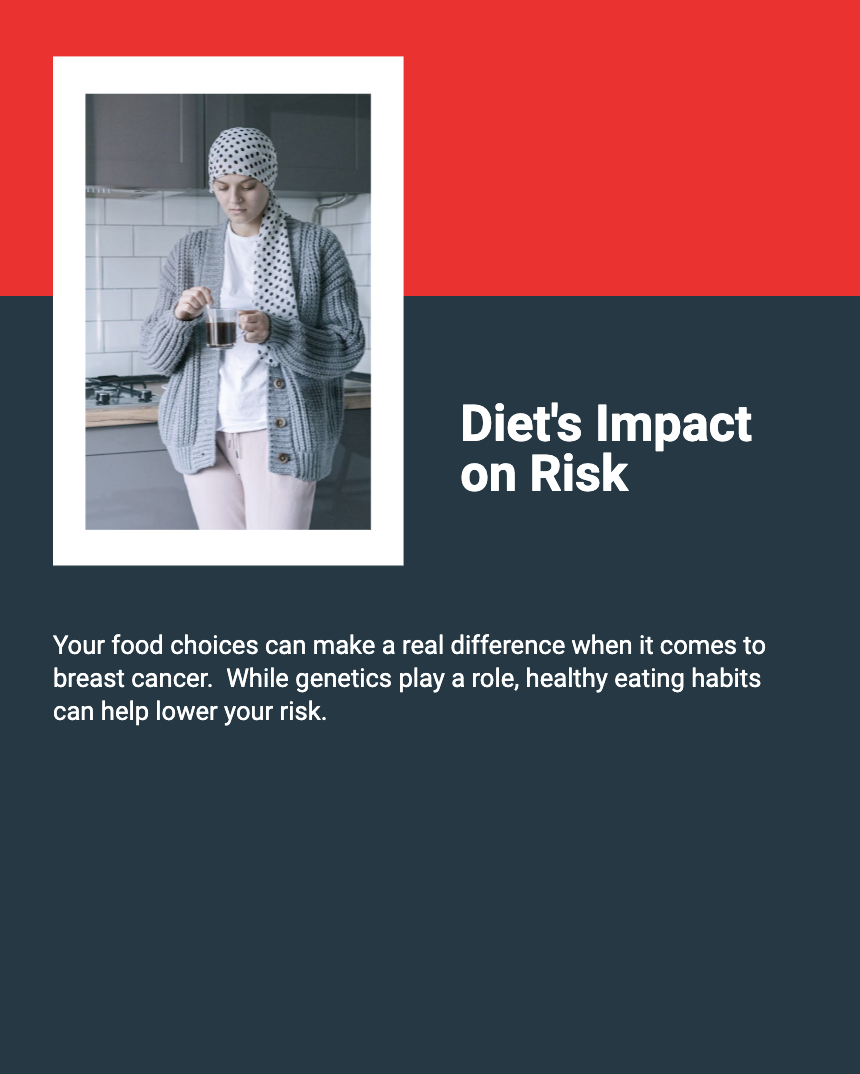
The Connection Between Food and Cancer
Scientific evidence points to a strong link between diet and cancer. Certain foods have protective effects due to their nutrient content, while others may increase risk by promoting inflammation or hormonal imbalances.
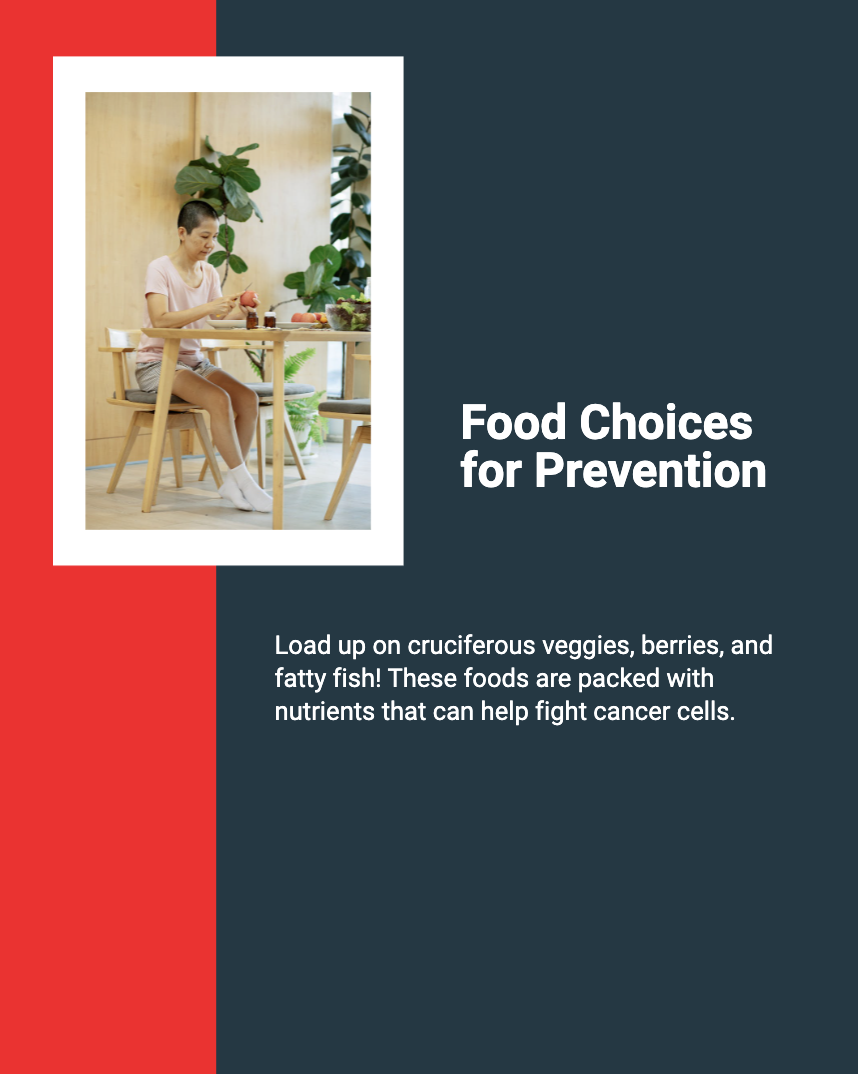
Cruciferous Vegetables
Cruciferous vegetables, such as broccoli, kale, and cauliflower, contain sulforaphane, a compound with anti-cancer properties. Studies suggest these vegetables can help detoxify harmful substances in the body.
Berries
Berries are rich in antioxidants like anthocyanins, which combat free radicals that can damage cells. Blueberries, strawberries, and raspberries are excellent additions to your diet.
Fatty Fish
Salmon, mackerel, and sardines are high in omega-3 fatty acids, which reduce inflammation and may lower the risk of certain cancers, including breast cancer.
Whole Grains
Whole grains like quinoa, brown rice, and oats are packed with fiber, which aids in hormone regulation and promotes healthy digestion.
Processed and Red Meats
High consumption of processed meats like bacon and sausages has been linked to increased cancer risk due to their high content of preservatives and carcinogenic compounds.
Refined Sugars and Carbohydrates
Excessive sugar intake can lead to weight gain and insulin resistance, which may contribute to breast cancer risk. Opt for natural sweeteners and whole foods instead.
Alcohol
Even moderate alcohol consumption has been shown to increase the risk of breast cancer. Limiting alcohol or abstaining altogether can significantly lower this risk.
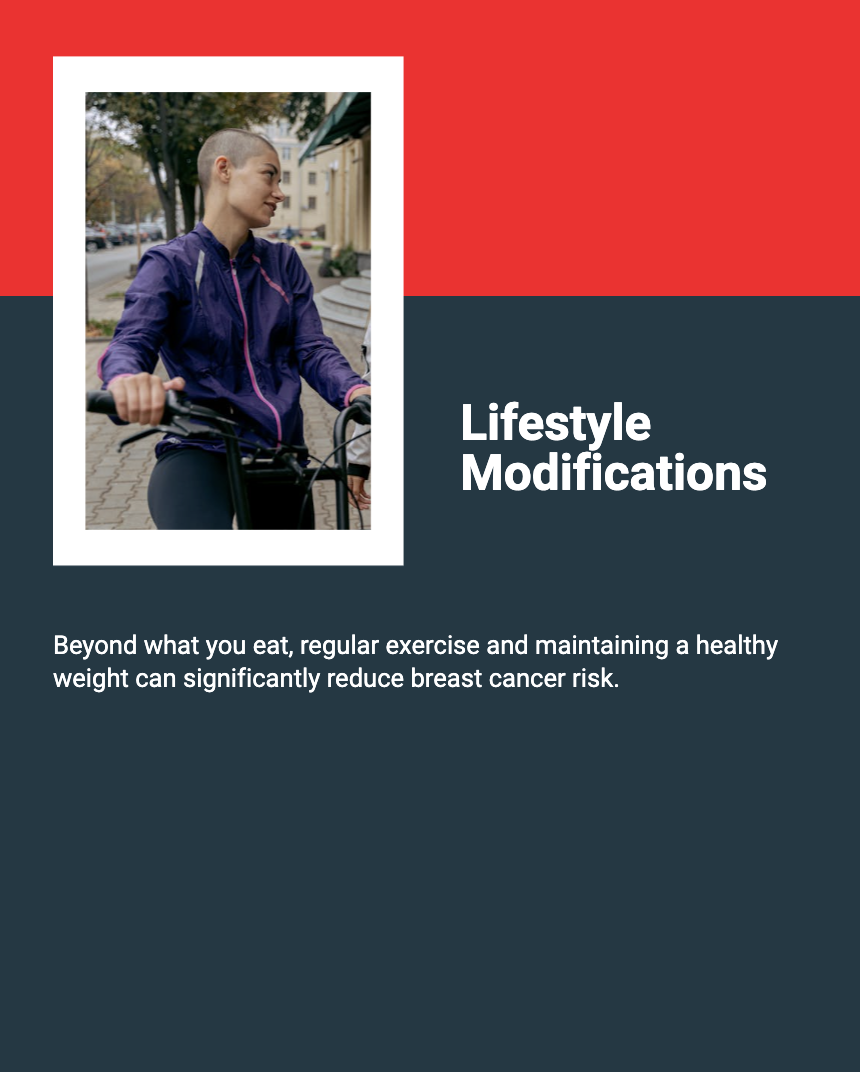
Exercise Regularly
Regular physical activity helps maintain a healthy weight, reduce inflammation, and regulate hormone levels—all factors that can help lower breast cancer risk.
Maintain a Healthy Weight
Obesity is a significant risk factor for breast cancer, particularly after menopause. A balanced diet and exercise routine are essential for weight management.
Avoid Smoking
Tobacco contains carcinogens that increase the risk of various cancers, including breast cancer.
"Superfoods Can Cure Cancer"
While certain foods have anti-cancer properties, no single food can cure or completely prevent cancer. A balanced diet with diverse nutrients is key.
"All Fats Are Bad"
Not all fats are harmful. Healthy fats from sources like avocados, nuts, and seeds are essential for overall health and can help reduce inflammation.
Breakfast: Greek yogurt with fresh berries, flaxseeds, and a drizzle of honey
Snack: A handful of almonds and a small apple
Lunch: Grilled salmon with a side of steamed broccoli and quinoa
Snack: Baby carrots with hummus
Dinner: Stir-fried tofu with mixed vegetables and brown rice
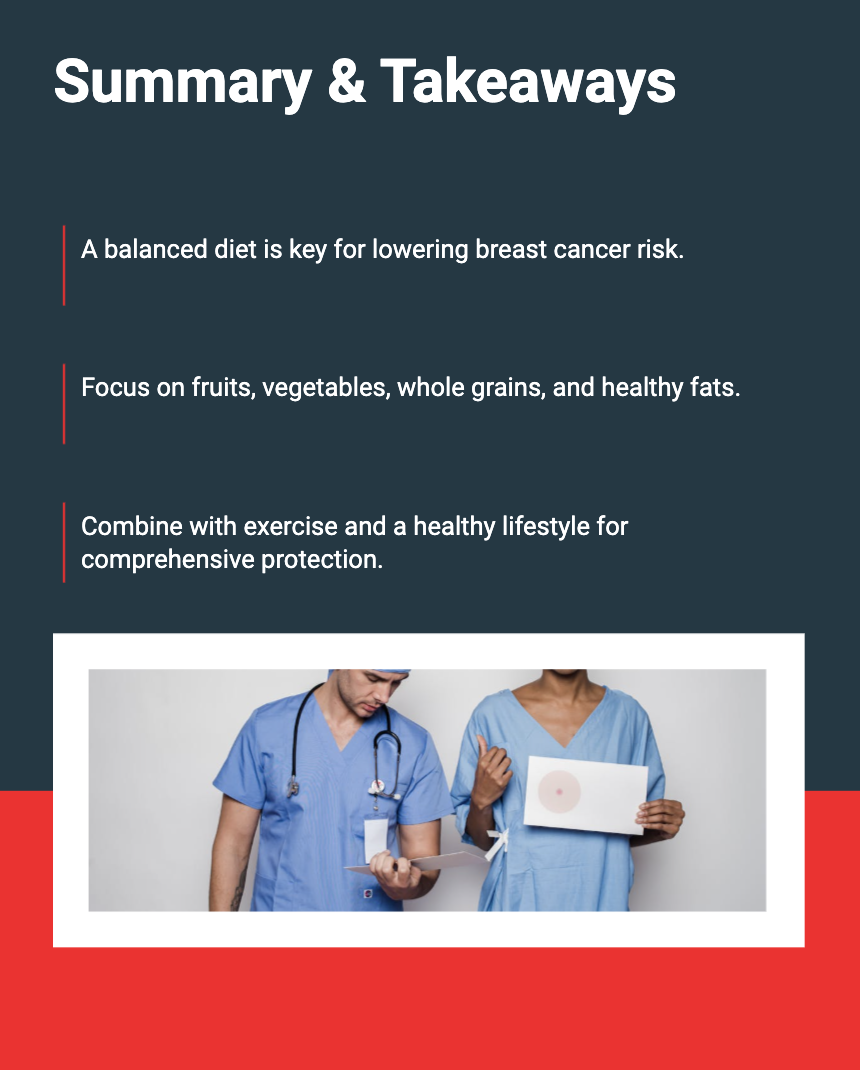
While no diet can guarantee protection against breast cancer, a balanced and nutrient-rich eating plan can play a crucial role in reducing risk. Incorporating plenty of fruits, vegetables, whole grains, and healthy fats, while avoiding processed foods, refined sugars, and alcohol, promotes overall health and helps mitigate cancer risk. Pairing these dietary habits with regular exercise and a healthy lifestyle further enhances protection.
No, diet alone cannot prevent breast cancer. However, it is a significant factor in reducing risk when combined with other healthy lifestyle practices.
Supplements can fill nutritional gaps, but should not replace a balanced diet. Consult a healthcare professional before taking any supplements.
Yes, moderate consumption of whole soy foods, such as tofu and edamame, is safe and may even have protective effects.
Alcohol increases estrogen levels and damages DNA, both of which can contribute to breast cancer development.
While organic foods may reduce exposure to pesticides, the overall nutritional value of the food matters more for cancer prevention. Focus on eating a variety of fresh, whole foods.
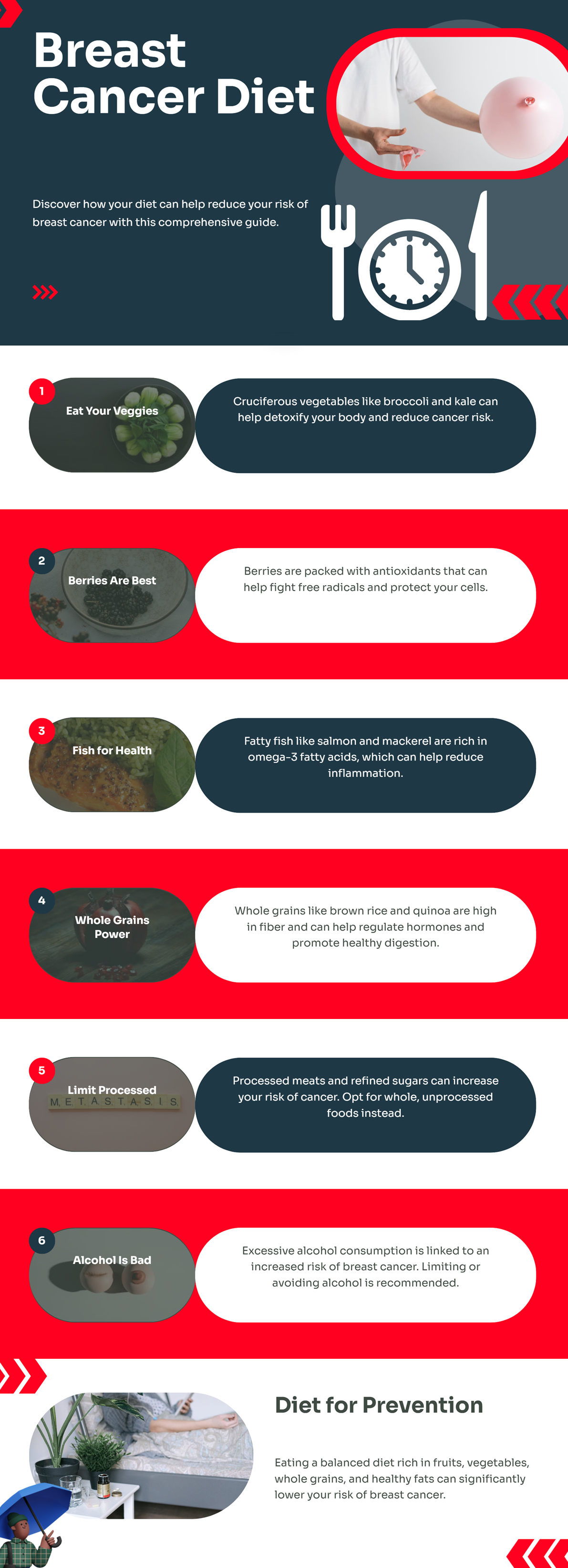 13.03.2025
13.03.2025